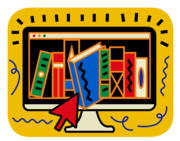Herzlich Willkommen zum Mitglieder-Wiki von Wikimedia Österreich.
Für ein Benutzerkonto schreibe bitte an verein [at] wikimedia.at
Projekte/Roadmap 2025 en: Unterschied zwischen den Versionen
(Die Seite wurde neu angelegt: „rahmenlos|rechts|hochkant=0.6 Wikimedia Austria pursues several strategic goals, which we plan to implement fully and with th…“) |
(kein Unterschied)
|
Version vom 22. November 2021, 11:43 Uhr
Wikimedia Austria pursues several strategic goals, which we plan to implement fully and with the aim of sustainability by 2025. To measure our progress, we derive success criteria (metrics) from the objectives described below, which we check for validity at least once a year and revise as necessary. The aim is also to take the current global strategy development and the associated changes for the Wikimedia movement into regular account. Our strategy builds on a healthy organisational environment with the people involved. The full achievement of our strategic goals requires additional financial and human resources. We aim to generate these resources on a broad scale, relying on permanent and individual donations, public funding, sponsorship and in-kind contributions from partner organisations in addition to core funding through international fundraising.
Volunteer Support
- We support a diverse volunteer community that commands a wide range of expertise, desires to steadily improve in its work together and offers a constructive and equitable environment to existing and new contributors.
The focus of our activities is on our volunteer communities in Austria. We also maintain respectful cooperation with emerging Wikimedia communities around the world. Furthermore, we actively contribute to the development of sustainable structures for cooperation and fair and equitable distribution of resources in the global Wikimedia movement. We want to support our volunteer communities when it comes to retaining existing contributors and sustainably recruiting new volunteers on a broad and diverse social basis. We consider motivation essential for volunteer work. In order to motivate people to volunteer in the communities, we want to ensure satisfaction among contributors, improve it if possible, and in doing so, recognize communication culture as an essential factor. At the same time, we consider it our mission to increase society’s appreciation of volunteers and of their responsible development of free knowledge.
Through collaborative activities and documentation, we support the development and recognition of all the expertise that enables people to successfully advocate free knowledge. Actively supporting both existing and new volunteers in their networking is just as important to us as promoting their personal initiative and autonomous projects. In addition, we want to be receptive to the interests of the communities, also representing them before third parties in the best possible way.
Free Content
- We support the generation, production and distribution of free content that reliably represents the knowledge established in society, in its diversity. In addition, we want to ensure easy access to and easy reuse of these contents for all.
This is achieved both through the development and support of activities of our volunteer communities as well as through the targeted development of partnerships, particularly with cultural, memory and educational institutions.
We believe it is important to consistently increase the sum of free knowledge. Similarly, we are committed to promoting the high quality of free knowledge at the formal and content levels. Formal quality includes, inter alia, compliance with high technical standards in media production. At the same time, we want to promote access in many different media formats. Content quality means, in particular, that the knowledge is reliable, well-documented and comprehensible, and has the power to dispel disinformation. These efforts will also include the identification and filling of knowledge gaps, especially about and by underrepresented groups.
We also seek to reduce barriers and reservations related to the reuse of contents by means of free licences.
Free knowledge: awareness and change
- In cooperation with partners, we want to help shape political changes in favour of free knowledge at various levels and support people when it comes to using the internet as an open and public resource.
The programme is divided into the three areas of public relations, political and social representation of interests and education. The aim is to generate awareness among the general public for the significance of free knowledge and to help shape the social conditions in which free knowledge can grow. We want to teach the general public about the value and importance of a free digital collection of knowledge for modern information societies and, above all, about the contribution of Wikimedia communities thereto. (Digital) commons not only enrich our cultural and knowledge landscape, but they also cultivate innovation and economic progress.
As a consequence, on the one hand, we want to proactively help shape legislative processes in favour of free knowledge, at the regional, national and European levels. These goals will be achieved through networking and close cooperation with existing and new partners from civil society as well as like-minded people in public administration and other organisations relevant to the respective subject matter.
On the other hand, free knowledge is also to become a normal part of our everyday lives, in school and university teaching, in public institutions as well as civil society initiatives. To this end, we support the development of expertise relevant to the creation and handling of free knowledge with interested partner organisations, especially media, as well as educational, cultural and memory institutions.



